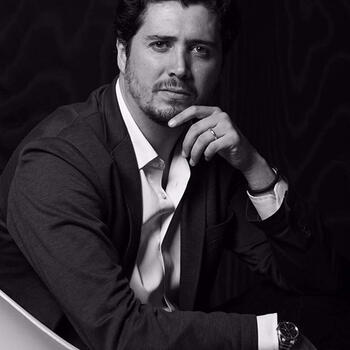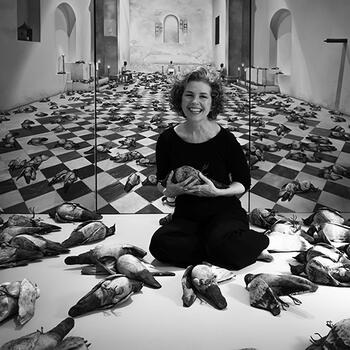The Vindication of Art in the Face of the Dispute

Dec 2 - 4pm Miami // Pinta Miami Auditorium
225 NE 34th Street Miami, FL 33137
Free Access with the ticket
Ruby Rumié and Nohra Haime will discuss with Oscar Roldán Alzate the link between artistic practices and politics, and new aesthetic experiences.
A special highlight is given in the Solo Projects section to Ruby Rumié, from the Nohra Haime gallery in New York. This Colombian multidisciplinary artist depicts the artist’s responsibility towards the community in a photographic installation that embodies social and territorial heritage as a creative approach to violence and injustice. In the way she portrays her subjects, Rumié provides deep psychological insight and a powerful sense of identity.
Oscar Roldán holds a Masters degree in Plastic Arts and is Magister in Political Science by the University of Antioquia. In 2002, he began to develop cultural and curatorial research and between 2008 and 2014 he worked as Chief Curator at the Museum of Modern Art of Medellin.As a political scientist, he maintains an analysis and research activity that he presents with a focus in History and Art Theory for multiple publications and academic settings. His Master’s degree research project is titled Art as the Constituent Power, Ten Cases in Colombian Art between 1995 and 2005.
Ruby Rumié was born in Cartagena de Indias, Colombia. A city of contrasts, known for having one of the one of the most important historical and touristic centers of the country, which at the same time presents high levels of racial discrimination, social inequality and extreme poverty.
racial discrimination, social inequality and extreme poverty. In the midst of this panorama, Rumié focuses her work on social problems, mixing several disciplines such as ethnography, psychology and ethnography, psychology and sociology, referring to situations such as gentrification, gender violence, social barriers and social gender violence, social barriers and the splendor of small trades where art and its relationship with the communities have art and its relationship with the communities have been the common thread.
Her work includes painting, sculpture, photography, video, and installation, materializing it by representing the body through volume structures in the form of objects, others of large installations where she works installations where he works with repetition as a platform for protest and photographs that induce riddles and photographs that induce the riddles of social strata; all with the idea of creating narratives that promote play, pleasure and promote play, visual pleasure, emotion and questioning.
In her own words: "Art can upset the senses, awaken emotions and trigger reflections.
detonate reflections, that's why I work to tear us away from the terrible indifference, create empathy and generate empathy and generate questions to build us as better human beings".
Within this context, he has exhibited in museums and galleries around the world projects such as: Tejiendo calle, Getsas, Getsas, Getsas, Getsas and Getsas.
such as: Tejiendo calle, Getsemaní: Sujeto | Objeto, Lugar Común, Por Mayor y Detalle, Hálito Divino and La caída.
Divino and La caída.
In 2016 she was selected with a grant from the Rockefeller Foundation to participate in a multidisciplinary multidisciplinary program with 14 fellows from different countries at the Foundation's Center in Bellagio, Italy.
Foundation in Bellagio, Italy.
In 2017 she received the Women Together award from that same international organization, along with 15 women from different countries at the United Nations headquarters. In 2021, she received the Epifanio Garay medal from the Institución Universitaria Bellas Artes y Ciencias de Bolívar, UNIBAC.
Rumié lives and works in Cartagena de Indias, Colombia.



